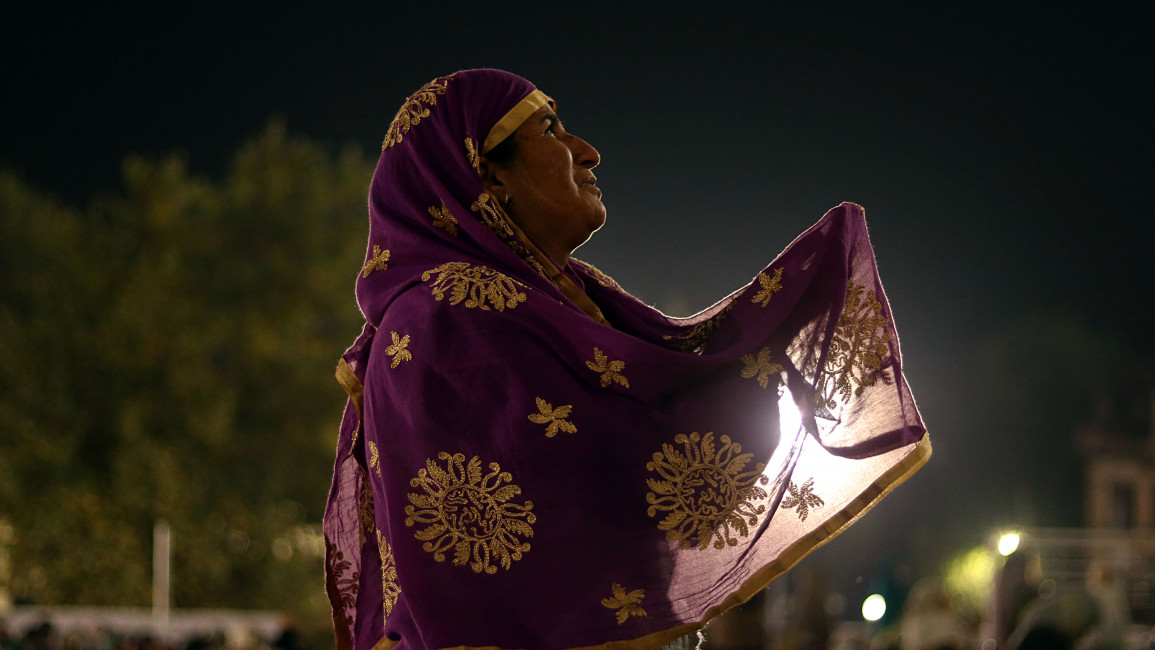Muslims worldwide mark Prophet Muhammad's birthday in troubled times
Muslims around the world on Saturday marked the birthday of the Prophet Muhammad, known as Mawlid al-Nabi.
From Morocco to Indonesia, the day is marked by public holidays, fireworks and festivities, in diverse traditions that have developed and diverged for over a millennium.
Many sources attribute the first formal celebrations marking the day of the prophet’s birth to Fatimid Egypt in 972 AD - and has been upheld by many Shia and Sunni Muslims ever since.
في ذكرى المولد النبوي الشريف 🤍 pic.twitter.com/MlpnjFs0V8
— ذكِّر (@thkkerr) October 8, 2022
Every year, Mawlid al-Nabi falls on either the eighth or twelfth day of the third month of the lunar calendar.
After Islam’s two Eid celebrations each year, Mawlid al-Nabi is one of the most significant events in Islam.
Some elements of Islamic thought still consider the celebration inappropriate and un-religious, including in the kingdoms of Saudi Arabia and Qatar - with many Sunni scholars arguing that the day was not marked during the prophet’s life.
Even so, Mawlid al-Nabi is now so widely celebrated that UK Premier League football clubs send out messages of appreciation to Muslim fans on the day of the prophet’s birth.
But this year, some celebrations have served as a painful reminder of violence and turmoil in many parts of the Islamic world.
Houthis enforce celebrations
Just days after the Yemen truce collapsed, millions of Yemenis in areas controlled by the Houthis took part in centrally organised rallies, taking to the streets in Sanaa and beyond.
Endless parades of trucks adorned with green lights crawled the streets, while masses on the march have been broadcast far and wide on media channels sponsored by the Houthis.
But many residents told The New Arab's Arabic-language sister site Al-Araby Al-Jadeed that militiamen had forced them into taking part in the celebrations to stitch together an image of national unity to project to the world.
"The people of Sanaa feel they are obliged to celebrate, whether they want to or not," said teacher Mathar al-Wadei.
"There are Yemenis who, for religious reasons, don’t believe in celebrating the prophet’s birthday - but the Houthis are determined to present us all with one voice," he said.
Militiamen have been forcing individuals and businesses to make financial contributions to the proceedings, Al-Araby Al-Jadeed reported.
"They tell you that it’s not obligatory to donate - but if you don’t, they can try all sorts of tricks against you, telling you have old unpaid fines to pay, or spreading rumours that you’re against the Houthis," said one resident.
Houthi leader Abdel-Mailk al-Houthi has, however, spoken out against the practice and forbidden officials from compelling Yemenis to donate towards celebrations.
🟢الله اكبر ما شاء الله
— ⭕حسن (@h_98_s) October 8, 2022
مشاهد مهيبه للحشود المباركه التي أحيت #المولد_النبوي_الشريف في العاصمه #صنعاء_الجهاد pic.twitter.com/PZxBOlZw0V
Festivities under attack in Palestine
As Palestinian Muslims attempted to mark the birthday of the prophet this year, Israeli police attacked and wounded those processing through Damascus Gate in the daytime on Saturday.
At least 17 Palestinians were wounded by tear gas, stun grenades and live rounds used by military police, according to the Palestine Red Crescent Society.
Several were also arrested and remain in Israeli custody.
For many Palestinians, the procession is a key moment to demonstrate their continued presence in Jerusalem despite abuse from Israeli settlers and daily police violence.
And this year, a huge turnout turned into chaos as videos show police entering the crowds at Damascus Gate, charging with batons and firing tear gas.
Despite the violence, Palestinian Muslims from Hebron to Haifa continued to celebrate the life of their prophet, on the streets and in their homes.
آلاف الفلسطينيين يحتفلون بالمولد النبوي الشريف في المسجد الأقصى#فلسطين #المولد_النبوي_الشريف #حفل_ديني #المسجد_الأقصى pic.twitter.com/q3UzymIeUh
— Hespress هسبريس (@hespress) October 9, 2022



